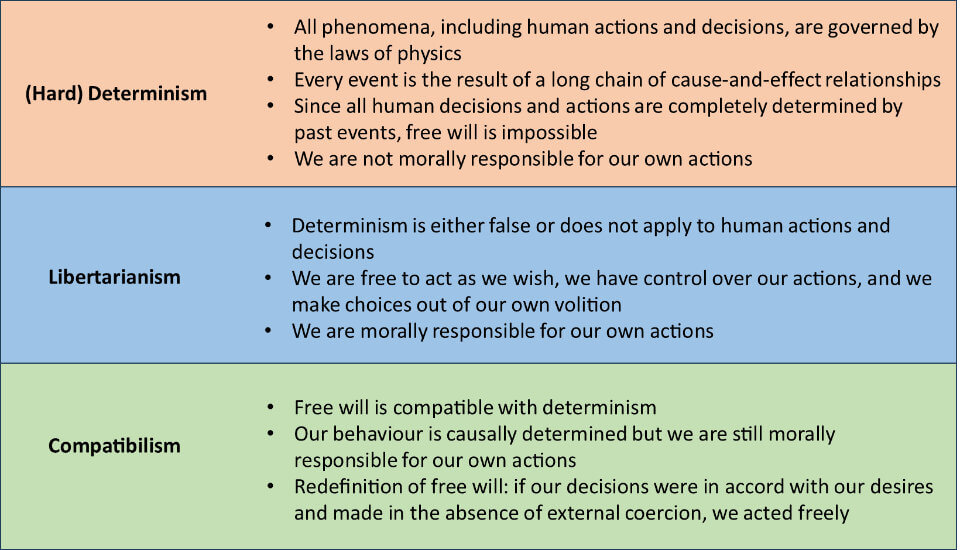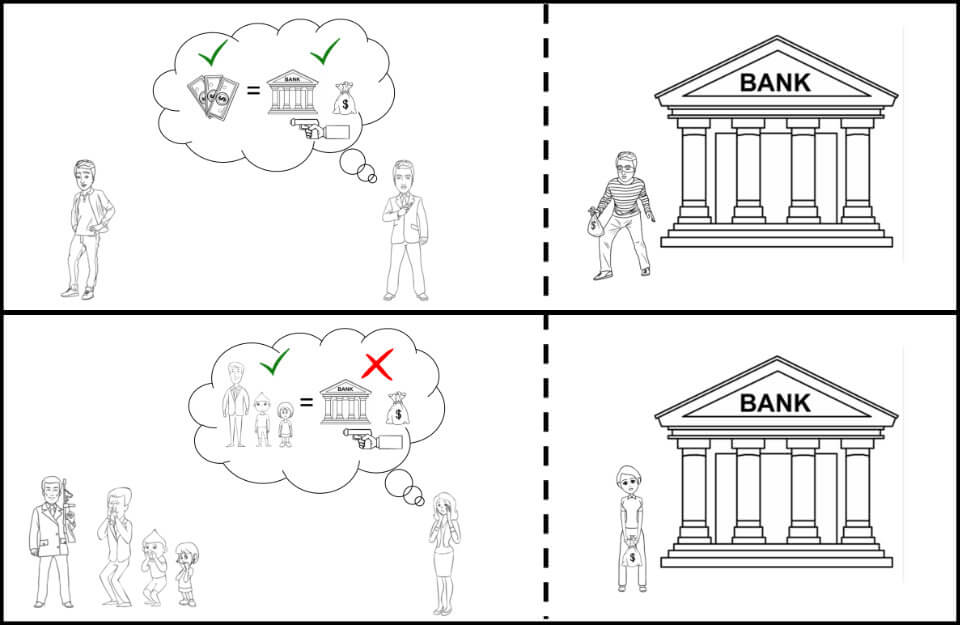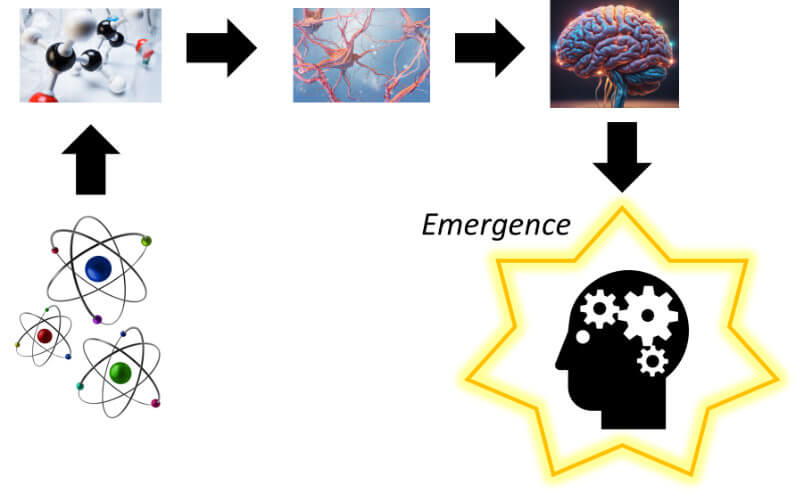This post is part of a larger deep dive
Curious about the role of the nature of consciousness and free will in The Talos Principle? Check out The Talos Principle Explained!
Or read the full The Talos Principle article!
This post is part of a larger deep dive
Curious about the role of the nature of consciousness and free will in The Talos Principle? Check out The Talos Principle Explained!
Or read the full The Talos Principle article!

There is no way I could possibly discuss all aspects of free will in a short article such as this. There are simply so many philosophical positions and debates surrounding the issue of free will, that I might not even scratch the surface here.
In philosophy, it is said that for something to have free will three principles must be true:
1) An action is free if the agent (e.g., a human being) performed it voluntary (conscious decision), and not by mere reflex.
2) An action is free if the agent had the option to act in a different way (principle of alternate possibilities).
3) An action is free if the agent who performs it is the ultimate cause of the action.
Points 1) and 2) are easy to determine. Let’s say you are standing in front of an ice cream shop, pondering if you should choose the vanilla or chocolate ice cream flavour. Ultimately, you go for chocolate. You are aware that you have made the conscious decision of choosing chocolate, it wasn’t something like a reflex that made you choose chocolate. Also, you know that you could have chosen the vanilla flavour if you wanted to, you just felt like you wanted chocolate more on this particular day.
Now point 3) is a lot harder to determine. You may intuitively think that as long as there was no one making you choose the chocolate ice cream, you were solely responsible for your decision. In other words, that you had control over and were able to choose what you want. In a sense, you don’t think the decision to choose the chocolate flavour was the result of some hidden force that led you to that decision.
Or was it?

There are three main philosophical stances that often crop up in discussions of free will: libertarians, determinism and compatibilism.
Determinism posits that every single event (including every human decision and action) is determined by preceding events. Consequently, any present or future human decision has been predetermined by the past. Therefore, determinism denies the existence of free will.
The libertarians, on the other hand, believe free will exists over and beyond mechanical processes. They argue that either the universe isn’t deterministic, or that the human mind is somehow special such that free will isn’t affected by the laws of physics.
Finally, compatibilists believe we live in a deterministic world (i.e., human decisions are indeed predetermined) but that free will is still compatible with determinism.
For the purpose of this article we are going to explore Compatibilism because it is more relevant for the game (let’s leave a discussion among the three views to the comments or forum sections).

Compatibilists distinguish two types of actions, those that are based on our desires and intentions and those that are based on external factors. That is, even though our actions might be predetermined by past events, if we can act according to our desires without external coercion, then we can say we acted with free will.
Now, anti-compatibilists will not be satisfied with this answer and will argue that compatibilists are just trying to give free will a special significance beyond the laws of physics, not unlike the libertarians. But that is a misunderstanding of the compatibilist position.
Let’s say John and Jane live in a deterministic universe where all of of their actions are indeed predetermined. Let’s also imagine that it is predetermined that they will both rob a bank today.
John loves living a luxurious life, but the only way he can afford it is by robbing banks. In contrast, Jane is a happily married mother of two with no intentions to engage in criminal activities. However, one day a criminal kidnaps Jane’s family and blackmails her into robbing a bank in exchange for her family’s lives.
Now, consider the scenario: both John and Jane were meant to rob a bank (they’re in a deterministic universe after all), and there was nothing either of them could do to stop it – it was predetermined they would do it. However, John robbed the bank because he wanted to, it aligned with his intentions and desires. Jane, however, did not want to rob the bank, someone coerced her into doing it or else lose her family.
The end result was the same though, both robbed the bank. My question to you is this: do you think John and Jane should be punished equally?
If your answer is “no”, then you’re a compatibilist! You see, whether the world is deterministic or not shouldn’t matter a jot. Jane is completely innocent here since she did not want to rob the bank and wouldn’t have done it hadn’t someone coerced her into doing it. John, however, is completely guilty; he robbed the bank because it was an easy way out to finance his luxurious lifestyle. In other words, John acted with free will, whereas Jane didn’t.
You might counterargue by saying that compatibilists are simply re-defining free will… and they would agree with you! Compatibilists believe that their definition of free will is actually how most people intuitively think about free will, so it is a definition worth considering. Furthermore, compatibilist free will is required for moral responsibility, which, of course, is an important aspect of a well-functioning society.

You might still not be happy with the previous definition of free will. You might say that, regardless how compatibilists put it, one cannot ignore the fact that if we look deep enough there is only the layer of atoms and molecules following strict casual laws.
OK, let me give you another example. When you are thinking, do you consider your thinking real? I’m assuming you said yes.
However, in theory, you could go down to the (sub-)atomic level and describe the process of thinking purely in terms of physical (and deterministic) properties, for example, by looking at the position and velocity of every atom in your brain.
But when you reach that level, can you still talk about thinking? None of the individual atoms is actually thinking, so it seems that when we want to talk about someone thinking it isn’t necessary (or useful) to go down to the level of description of the physics involved.
In fact, it’s the entire interactions of atoms, molecules, cells that give rise to thinking. Something emerging from its fundamental constituents is called emergence. So, there are different levels of description when talking about human abilities in general. There is a purely physical description (at the level of atoms, molecules, etc.) and one emerging from those same physical mechanisms (e.g., thinking). Both descriptions are valid, but the latter is certainly more relevant for our understanding of the human mind.
Likewise, you can think of free will as an emergent process. It could be that our decisions are predetermined down to individual atoms, but is that a useful description of our behaviour, which is directly relevant to us? Compatibilists say it isn’t, and that whenever we think of free will we need to keep in mind that we are referring to the idea of being able to choose based on desires and without external coercion.
Leave a comment
Add Your Recommendations
Popular Tags